Germany's desperate search for geopolitics
Germany is afraid of geopolitics, for imperialism is literally attached to the term. In the German mentality, geopolitics is primarily associated with commodity wars. A not insignificant part of the population associates the 2001 Afghan war with the intention of building an oil pipeline - and the 2003 Iraq war with the "blood for oil" campaign. Berlin, given its preserved moral supremacy in diplomacy and ecology, has been fastidious about not getting involved in such contexts. However, the Chancellor's recent trip to Latin America has put German energy and foreign policy in multiple straits. It has revealed the helplessness of any German long-term strategies - also with consequences for European interests.
Chancellor Olaf Scholz has taken on a difficult legacy in several respects. The Social Democratic-Green coalition under Gerhard Schröder had already decreed the phase-out of nuclear power. The Christian Democrat successor, Angela Merkel, first reversed the decision. But this turnaround was followed by a second one. Merkel used Fukushima as a springboard for an energy turnaround (“Energiewende”) that envisaged not only the phase-out of nuclear power, but also a fundamental renunciation of "fossil" energies.
That climate protection offensive included several "turnarounds". Among them was a mobility turnaround (“Mobilitätswende”). As early as in 2016, the then State Secretary in the Ministry of the Environment, Jochen Flasbarth, announced that he wanted to abolish the internal combustion engine by 2035. Germany subsidised electric cars, while at the same time the media flanked government policy with a smear campaign against petrol and diesel engines. At the EU level, Ursula von der Leyen, a close companion of Merkel, is now in power. The "2035 target" has become reality. Germany has pushed it aggressively.
Merkel's supposed climate strategy was actually a political coup. With climate protection, renewable energies and nuclear phase-out, she wanted to take the wind out of the sails of the Greens, who were threatening to become the strongest force in the federal states as well as on the federal level. She always painted the centrist CDU one shade of green stronger than its political rival. In this way, the Chancellor secured her hold on power and the option of being able to enter into coalitions with a Green junior partner. She extended this calculation by having her party also push for a coal phase-out.
The consequences for Germany as an industrial country, on the other hand, are fatal. Even before the inflation and energy crisis, German electricity prices climbed to unknown heights. Germany also mutated from an energy-independent country to an energy importer. With the construction of Nord Stream 1, Schröder had already implemented the green strategy of covering the lack of nuclear power with gas. Merkel's Russia strategy and the construction of Nord Stream 2 are due to Germany's increasing energy needs, as wind turbines and solar cells do not generate a base load but depend on the elements.
Thus, the self-imposed dependence on German gas also dictated foreign policy towards Russia. However, this was not the only case. By building wind turbines and solar cells, Germany placed itself in an additional dependency on China. Up to now, the People's Republic has been considered the largest raw material store of the urgently needed rare earths. For its ecological utopias, one of the largest economic nations on the planet had to give up its energy independence. The current import of liquefied gas from the USA, which ultimately replaces Russian gas imports, is just another dependency.
However, the entire German dilemma is highlighted another resource: lithium. Lithium is considered the industry's "white gold" due to the expanding electrical sector. It is found in almost all components of batteries for electric cars. The fact that the Chancellor was able to make the cost-intensive energy transition palatable to German industry was based on several promises. Among other things, Germany was to be a pioneer in new technologies. Instead of producing regular combustion cars, Volkswagen was to become the world market leader in electric cars.
However, this noble wish turned out to be difficult to fulfil. While Chinese and American companies directly operated lithium mines overseas, German companies adhered to the principle of buying the metal on the world market. Trapped in the "world of yesterday", German producers did not think that resources had blackmail potential. The fact is that the Chinese state-owned company Tianqi which is responsible for almost 50 per cent of the world's lithium production has not always been a profitable business. However, in the long term that state-owned company can be sure that electric car production in the Middle Kingdom will run smoothly for years to come. Elon Musk announced several years ago that Tesla would purchase lithium directly from the US lithium producer Albermarle. Musk stated the paradigm shift a few days ago only: Lithium is the new oil.
Countries that want to join this race must have neo-colonial ambitions. As in the 19th century, the world powers have fleets and armies at their disposal today. Pacifist-ecological Germany does not have this option. Instead, it has put itself in a double predicament: it must be a climate protection pioneer and at the same time produce a raw material whose extraction is considered extremely dirty. In the country triangle Argentina-Bolivia-Chile lie the world's largest lithium deposits, whose extraction requires millions of litres of water - in a water-scarce region where people suffer from the destroyed environment.
Germany already tried to use its "soft power" in the final phase of the Merkel government by promising better framework conditions in a competition for the Bolivian lithium. The Germans wanted to mine the lithium in a more environmentally friendly way than the Chinese competitor and let the population benefit from the exploitation of resources. Surprisingly, the then president Evo Morales awarded the contract to a company from Baden-Württemberg - and duped the Chinese.
Only a short time later, however, the 2019 elections in Bolivia were to turn out unfavourably for Morales. There was an uprising in the lithium region. The workers complained that the Germans were lining their pockets. So far, the exact circumstances of these accusations have not been clarified. However, it is a fact that the licence to the Germans became an important factor contributing to the fall of Morales. He desperately tried to dissolve the contract in order to secure the presidential seat. The Chinese, who were still holding their protective hand over his Venezuelan counterpart Maduro when he was caught in a similar crisis, did not lift a finger for Morales.
The example contains a clear lesson: you cannot win over countries with climate and environmental protection alone. Security guarantees are needed. Even for unpleasant figures. These are moral and world-political games that could have been spared with a proper energy policy at home. Bolivia should be a lesson to other Latin American countries that Germany cannot be relied on when the going gets tough.
It is this legacy that Scholz carried on his back when he was visiting Argentina, Chile and Brazil. In Argentina and Chile, there was a friendly reception and equally friendly words. But the commitments remained thin. The "Scramble for South America" is underway, but Germany prefers to talk about green energies to free Argentina, for example, from fossil fuel "dependency" - with a model that already failed to work in Germany.
Scholz, on the other hand, had to endure a downright humiliation in Brazil. The Social Democrat thought he had found an ally in the left-wing President Lula, for example with respect to climate protection. But Lula laughed at his German colleague at the press conference on these plans. A new supply chain law at the EU level, which Germany had developed in a leading role, caused disgruntlement. It is supposed to discriminate against products whose production is driven by the destruction of the rainforest. Germany's moral hubris was thus once again avenged in the practical diplomatic game. Scholz withdrew without results.
However, it is not so much Scholz who is responsible for this as a German "strategy" that has been in place for twenty years and from whose clutches the Chancellor, who is in coalition with the Greens of all parties, is unlikely to free himself. Whether foreign, security or energy policy - they have all been subordinated to climate protection in Germany (although one may ask how this can be reconciled with the phase-out of low-CO2 nuclear power).
This subordination of all policy fields to a grand plan, to a "big idea", has significant implications for the European policy. European allies will have to experience, time and again, both in dealing with Russia and in dealing with China, that Germany's self-inflicted problems take precedence over jointly formulated goals. And Europe will have to prepare itself for the fact that the supposed colossus in the middle of Europe will stand on feet of clay if the energy crisis worsens. Scholz announced only last week that the last three German nuclear power plants will be shut down in April.
Read also
Country Report: Germany Faces Loss of Prosperity
Despite the economic downturn, citizens are threatened with new taxes and hidden levies, for example through a reform of the heating law or the CO2 tax.
Marco Gallina
China and the Prigozhin campaign
How the uprising of Wagner Group leader Yevgeny Prigozhin must be evaluated is a chapter in itself. On the day of the alleged mutiny, events rolled over so quickly that one hardly noticed who did not speak out. While Putin was on the phone with Kazakhstan and Turkey, and the Belarusian Security Council as well as Iran reacted quickly, it was noticeable that one of the Russians' partners remained silent: namely, the People's Republic of China.
Marco Gallina
The Individual on the Defensive
Do Nazis have a right to life? Outside Germany, such a debate might seem perplexing. But during the last days of May, discussions in Germany revolved around nothing less, after a left-wing extremist was released under quite lenient conditions.
Marco Gallina
A King for Germany
King Charles III visited Germany, continuing thus a line of tradition established by his mother. Not so much the visit itself, but rather the reactions to it cast a telling light on Germany in particular, and Europe in general. Monarchy, one could have the impression, is actually something that belonged to the Middle Ages.



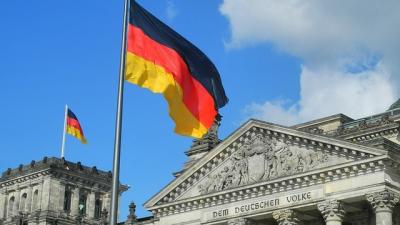


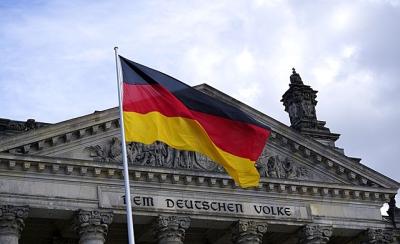

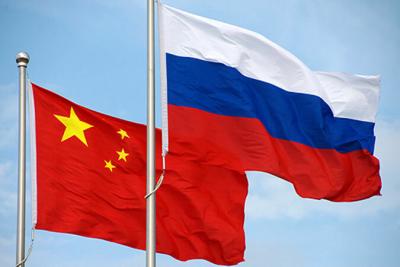

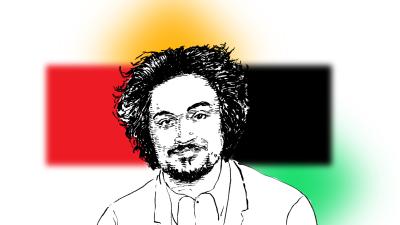

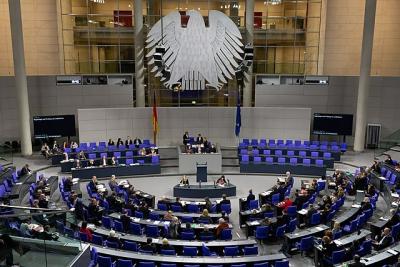

Comments (0)